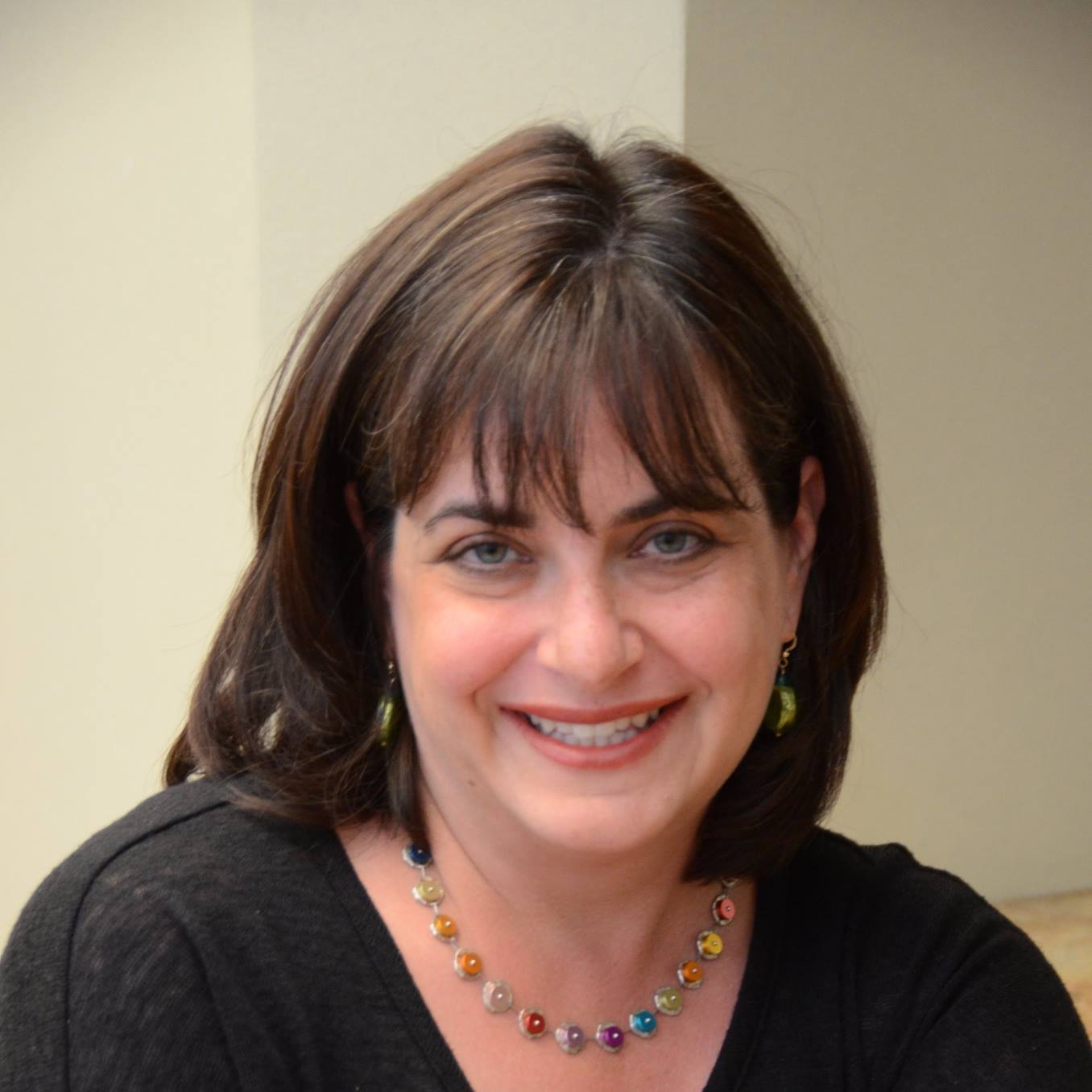Judge Thomas Buergenthal, 89, Pioneer of International Human Rights and One of Auschwitz’s Youngest Survivors
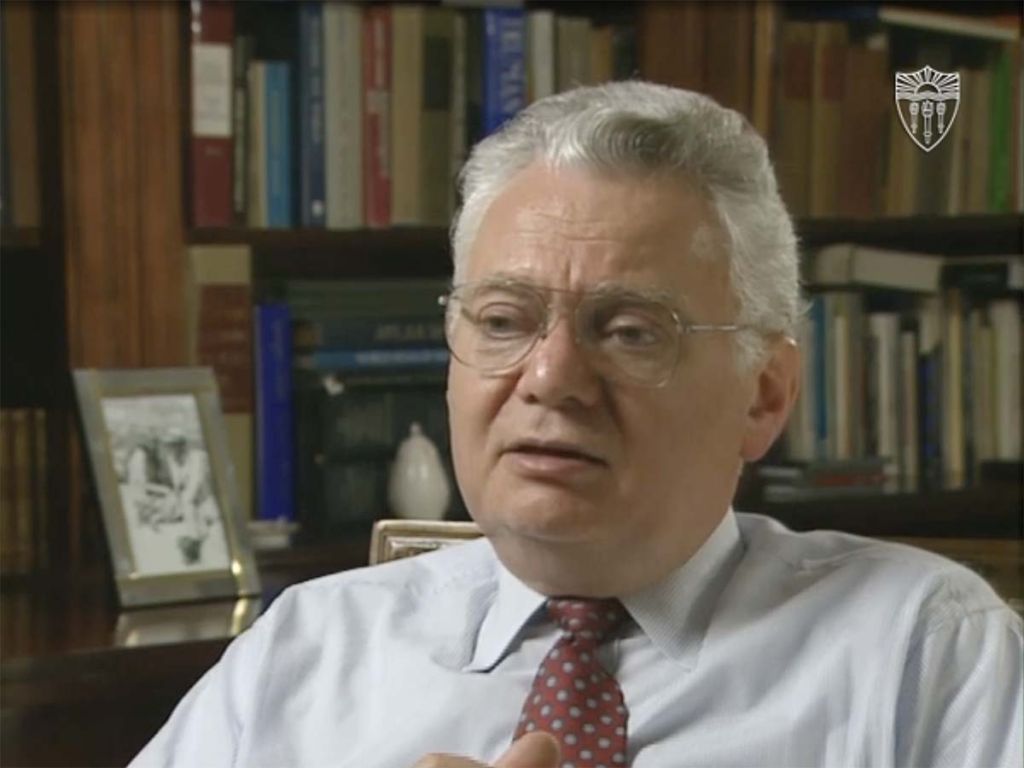
The USC Shoah Foundation mourns the passing of Thomas Buergenthal, one of the youngest known survivors of Auschwitz who later became an esteemed human rights attorney and United States representative on the International Court of Justice in The Hague. Thomas passed away on May 29, 2023, in Miami, Florida. He was 89.
Thomas was just shy of 11 years old when he was liberated from the Sachsenhausen Concentration Camp after enduring a death march from Auschwitz, where he survived by volunteering to work.
In 1951, he immigrated to the United States, where he earned a law degree from New York University Law School and two advanced degrees from Harvard Law School. As a professor of law specializing in international law and human rights, Buergenthal authored about a dozen books.
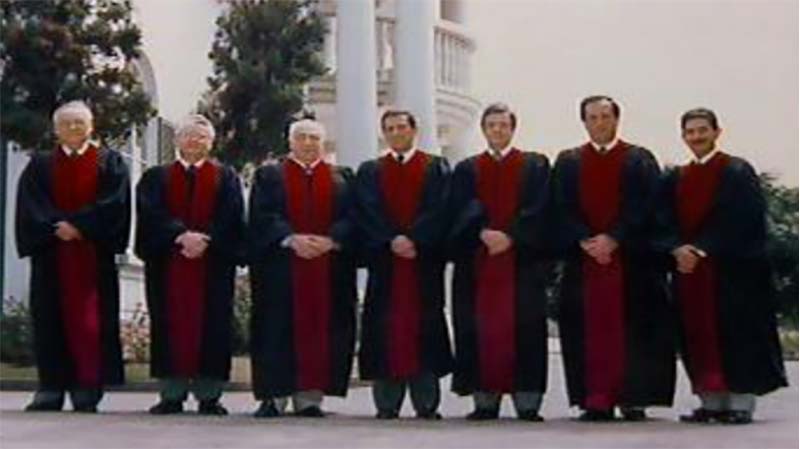
He often acknowledged the link between his traumatic childhood and his work protecting others from oppressive regimes.
“I always believed that a part of my human rights work was motivated one way or another in believing that the law could have been used to prevent what happened to us in the ’30s,” he wrote in his 2007 memoir, A Lucky Child: A Memoir of Surviving Auschwitz as a Young Boy. “We have an obligation as survivors and we owe it to the people who died to make sure that these things don’t happen in other places.”
Thomas served as a justice on the Inter-American Court of Human Rights in the 1980s, including a term as that Court's President. He also served on the United Nations Truth Commission for El Salvador and the United Nations Human Rights Committee. He served as a justice at The Hague from 2000 to 2010.
Among many awards and honorary degrees, in 2016 he was awarded the Grand Cross of the Order of Merit, the German Federal Republic’s highest tribute to an individual.
Thomas recorded testimony with the USC Shoah Foundation in 1997. His account of life before, during, and after the Holocaust is contained in the Visual History Archive (VHA), a collection of more than 56,000 oral histories from survivors and witnesses of the Holocaust and other genocides.
Thomas was born on May 11, 1934, in Ľubochňa, Czechoslovakia, to Gerda and Mundek Bürgenthal. His parents had moved to Czechoslovakia from Germany in 1933 after Hitler’s rise to power, and they fled to Kielce, Poland, in 1939 after Germany invaded and carved up Czechoslovakia. However, soon after the Bürgenthals arrived in Kielce with hopes of emigrating onwards, Germany invaded Poland. By 1941, when Thomas was seven, he and his parents were forced to move into the Kielce Ghetto.
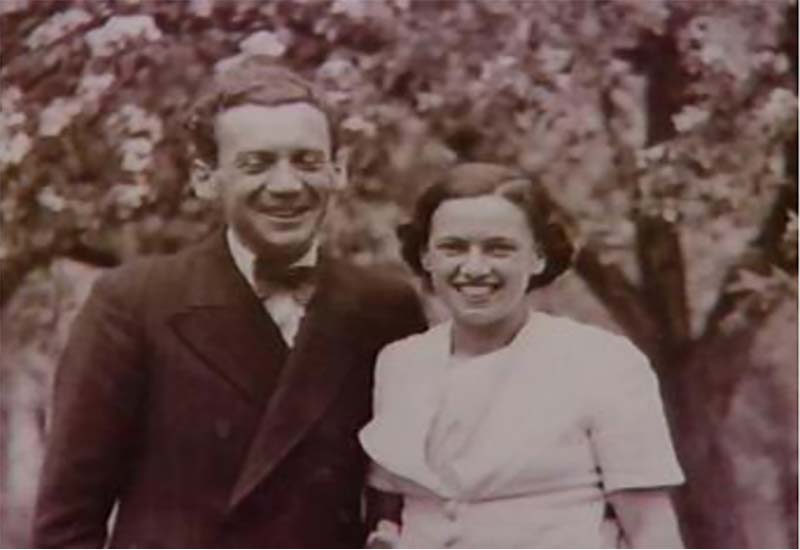
In his VHA testimony, Thomas recalls the brutality of the ghetto: the scarcity of food, violent raids, and the seemingly random shootings by German guards. But he also remembers partaking in more typical childhood activities – attending classes and playing with other children on the street.
He credits his childhood in the ghetto for the resilience and resourcefulness that later enabled him to survive Auschwitz.
“From 1939 onward, I did not have a normal childhood. So I was very much like the kids that you see in the streets – children that you see in Brazil or Guatemala. I grew up that way, so I knew how to take care of myself,” he said in his testimony.
In August 1942, Nazi SS and police began shutting down the ghetto, deporting residents and executing many of the most vulnerable on the spot. Some 21,000 Jews from the Kielce Ghetto were sent to their deaths in the Treblinka extermination camp, including Thomas’ grandparents.
Thomas and his family avoided deportation thanks to the ingenuity of his father. During the chaos of the Nazis’ liquidation of the ghetto, Mundek assembled his family and some friends and then marched them, as if on official business, to the factory where he worked just outside the ghetto. Later that evening, he convinced the commandant to allow the workers to stay in the ghetto to operate the factory. They and some 2,000 other residents were subsequently allowed to remain at a small labor camp within the ghetto.
In May 1943, the Nazis rounded up 45 children who had remained in the ghetto and brought them to the cemetery. Thomas’ parents clutched him and approached the commandant.
“I said to [the commandant], in German, ‘I can work!’ … I spoke German, I was blond. I must have sounded to him like his children would have. And he said, ‘well, let’s see!’ And he let me go,” Thomas said.
Nearly all the other children present were executed.
Thomas, then 10 years old, was put to work in a lumber mill making wooden carts and wheels for the German war effort , and soon after he volunteered to be an errand boy for the head of the factory.
In 1944, Thomas and his parents were marched to the train station and placed in a cattle car bound for the Auschwitz-Birkenau Concentration Camp.
Upon reaching their destination, the new arrivals from the Kielce factory were assumed to be “able-bodied” and sent directly to a work detail, thereby avoiding the selection process that might have sent a child of Thomas’ age straight to the gas chamber. Thomas and his father were separated from his mother and sent to the so-called “Gypsy Camp.”
Thomas remembers the hunger, the infested barracks, the beatings, and the endless roll calls and selections.
“The children would be the first to be selected out. So I developed a whole technique to save myself,” he said in his testimony. “The trick was to stand close to the door and as soon as they counted, you hid back in the barracks because then they did the selection.”
Thomas offered to work as an assistant for a kapo, a friend of his father who was appointed to oversee other inmates. He performed a variety of tasks, including disinfecting laundry, collecting garbage, and transporting items between subcamps. Through this job, Thomas was afforded extra protection, and was also able to find his mother in the women’s subcamp.
Toward the end of 1944, Thomas was separated from his father during a selection and sent to the gas chamber. But there weren’t enough prisoners to fill the chamber, so the group was sent to a medical barrack to wait. There, a Polish doctor working for the resistance sent Thomas to another part of the camp.
In January of 1945, as Soviet forces approached Auschwitz, the SS began evacuating some 60,000 prisoners. Thomas was marched in frigid weather approximately 30 miles northwest to Gliwice (Gleiwitz) before being shipped via open coal car to Oranienburg, near Berlin. From there, he endured another march, walking on frostbitten feet, to Sachsenhausen Concentration Camp, where he had several toes amputated at the infirmary.
Thomas was liberated by the Soviet army at the Sachsenhausen Concentration Camp in April, 1945.
“To me, it became a personal battle – a war – with the Germans that I would survive and they wouldn’t get me,” he said of his unlikely survival.
After liberation, he joined a group of young, non-Jewish Poles who went from town to town, finding food in houses abandoned by the Germans. Eventually, a Polish unit of the Soviet army took him in, and he traveled with them to Poland hoping to find his parents. He finally landed in a Jewish orphanage in Otwock, Poland, where a Zionist youth group added Thomas’ name to a list of orphans who wanted to move to Palestine.
It was on that list that Gerda found her son’s name.
She had been liberated near the Ravensbrück Concentration Camp in Germany and had spent nearly two years looking for her husband and son. Thomas and his mother were finally reunited in Germany in December 1946.
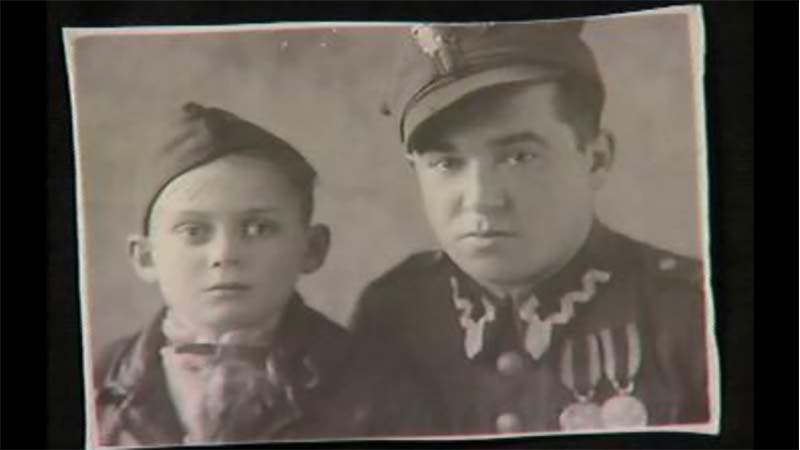
Soon after, they learned that Mundek had been murdered in a concentration camp near the end of the war.
“I think [my father] didn’t survive the camp because he thought I had died. He never knew that I had survived,” Thomas said.
Hoping to secure a better life for her son, Gerda sent Thomas to live with his uncle in Paterson, New Jersey, where he was placed in the 11th grade. He completed high school and later attended Bethany College in West Virginia on a full scholarship. He later earned his law degrees and rose to become an international jurist and human rights champion.
In the 1990s, Thomas became involved in The United States Holocaust Memorial Museum, where he helped establish the genocide prevention program and received its highest honor, the Elie Wiesel Award. In his 1997 testimony with the USC Shoah Foundation, Thomas decried the fact that the international community had allowed genocides to be perpetrated in Cambodia, Bosnia, and Rwanda.
“There is something terrible about the uniformity of human cruelty that always strikes me. And that's why I feel drawn to trying to prevent this from happening elsewhere,” he said. “I believe in keeping the past alive, but only if it serves the purpose of preventing future suffering of this type.”
Thomas is survived by his wife, Marjorie Buergenthal, his sons, Robert, John (Randi) and Alan (Hope) Buergenthal, stepchildren Cristina (Miguel) De las Casas and Sebastian Dibos, and nine grandchildren.
Like this article? Get our e-newsletter.
Be the first to learn about new articles and personal stories like the one you've just read.
